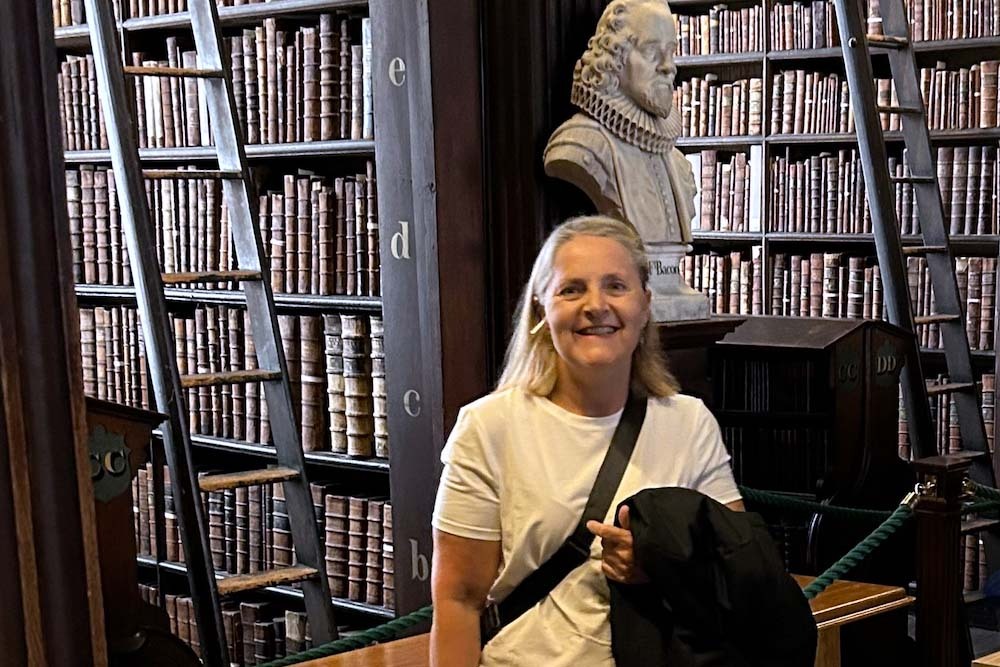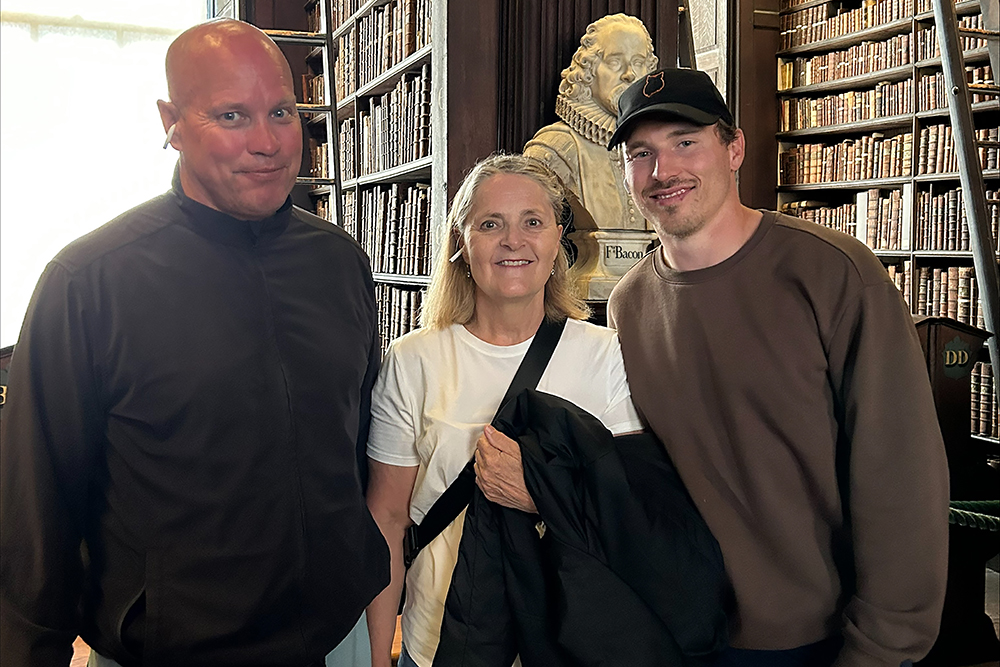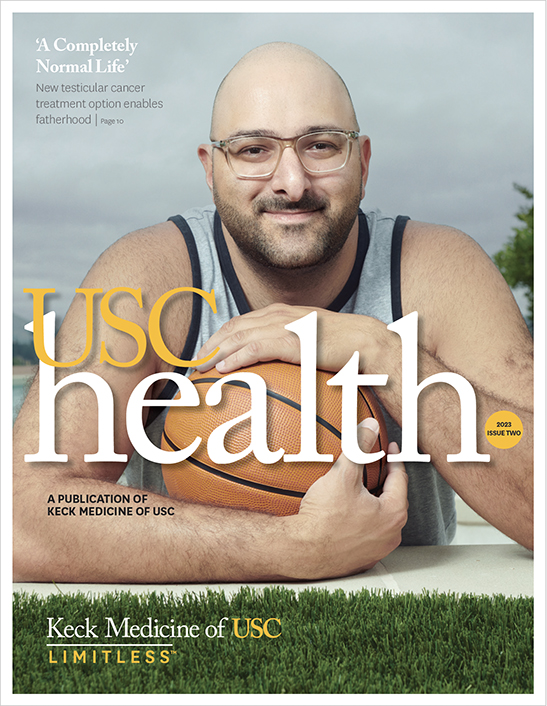
Following an awake craniotomy procedure in 2021, Della Gallagher continues to make monthly trips from her home in Canada for follow-up care at the USC Brain Tumor Center.
After Della Gallagher experienced a massive seizure in August 2021, her doctors in Canada diagnosed her with a glioblastoma – an aggressive brain tumor – and relayed a grim prognosis.
In Alberta, Della was offered surgery for a minimal reduction of the tumor.
“We knew that wasn’t going to be enough,” she says. “They didn’t have the surgical skills to do more.”
Della’s family has deep ties to the hockey community. Her husband, Ian, is a coach and trainer, and their son, Brendan, plays professionally for the Montreal Canadiens.
A friend in the hockey community connected her with the USC Brain Tumor Center, part of Keck Medicine of USC, and Gabriel Zada, MD, the center’s director and a neurosurgeon for Keck Medicine.
Within a week they had an appointment with him.
Awake craniotomy leaves memories intact
Della and Ian flew to Los Angeles for her appointment with Dr. Zada.
He performed an awake craniotomy, where he removed the entire brain tumor and excised some of the surrounding tissue to catch any rogue cells.
During the surgery, anesthesia was lifted to keep Della awake for critical memory and speech monitoring and to avoid injuring any important brain pathways.
“There were 16 people in the room,” Della says. “I was talking to the neurosurgery nurse coordinator the whole time and telling her some crazy stories. Even now when I close my eyes, I can see them all. I recall that surgery with such fond memories.”
[Della’s story] reminds us why we do what we do to preserve memory and we are delighted she is doing so well this far out from surgery.
Gabriel Zada, MD, director of the USC Brain Tumor Center
That Della’s memory is so intact is a small miracle. Often memory loss, particularly short-term memory loss, is a common side effect of brain surgery.
Her ability to describe the excellent care provided by her team of experts is even more powerful.
“Della’s story is an example of our team members coming together to focus on a challenging tumor located in the dominant memory center, while still being able to preserve her memory,” Dr. Zada says.
“It reminds us why we do what we do to preserve memory and we are delighted she is doing so well this far out from surgery.”
Brain tumor clinical trial offers intervention
Following her surgery, Della’s team of brain tumor experts offered her the opportunity to enroll in a phase three clinical trial for enzastaurin, which has the potential to stop the growth of cancer cells.
Under the care of Keck Medicine neuro-oncologist Frances Chow, MD, and radiation oncologist Lindsay Hwang, MD, Della continues to fight her tumor with the investigational drug.
“So far, I feel good, no side effects,” she says. “Being able to see the team once a month and participate in the trial gives me such hope.”
Both Della and Ian recognize their fortune to have access to 1 of 11 brain tumor clinical trials at Keck Medicine, calling it the highest quality of care they have received.
They continue to fly from Canada every month so Della can participate in the trial.
They are particularly grateful to their son Brendan’s ability to cover the costs of travel for his mother’s treatment.

Ongoing care for glioblastoma
Eighteen months after her first surgery, Della still feels good, and her bloodwork continues to come back normal.
“We go one day at a time,” Della says. “Tomorrow it could be different. Every tumor is different.”
But they have the confidence that their team at the USC Brain Tumor Center can fight whatever comes next.
Both Ian and Della agree that they can’t say enough about the quality of care and attention they’ve received from the entire staff, from the one-to-one nurse who styled her hair every day post-surgery to the staff who helped with the mountains of insurance paperwork and the physicians who keep searching for a cure.
They will persist with the international commute so Della can continue receiving Keck Medicine’s care.
According to Ian, in order to receive this level of care, “it’s just what you do.”
Topics


